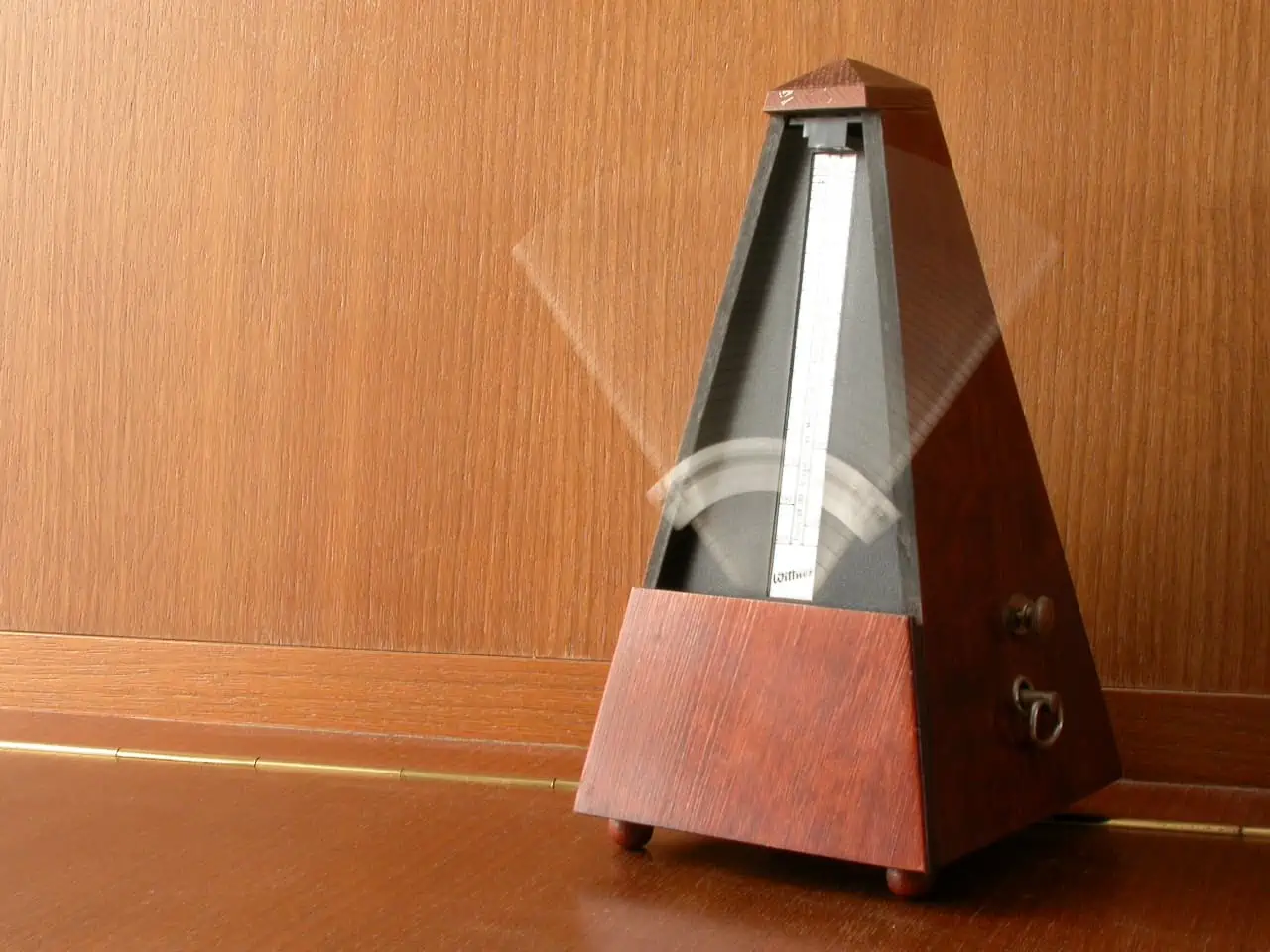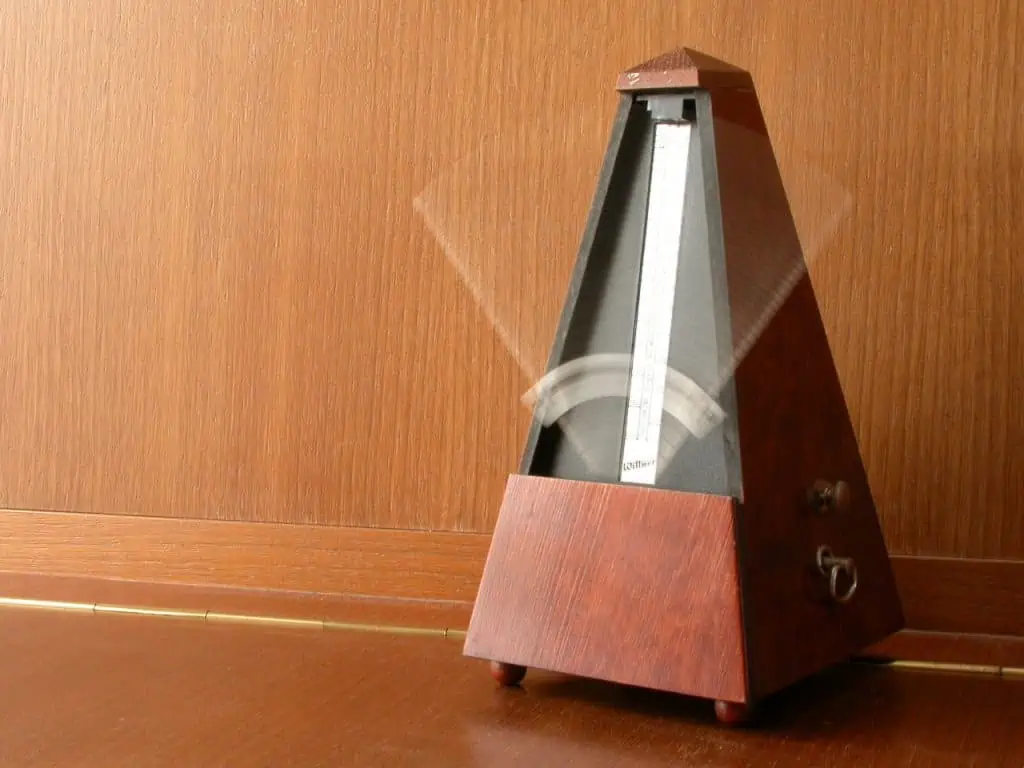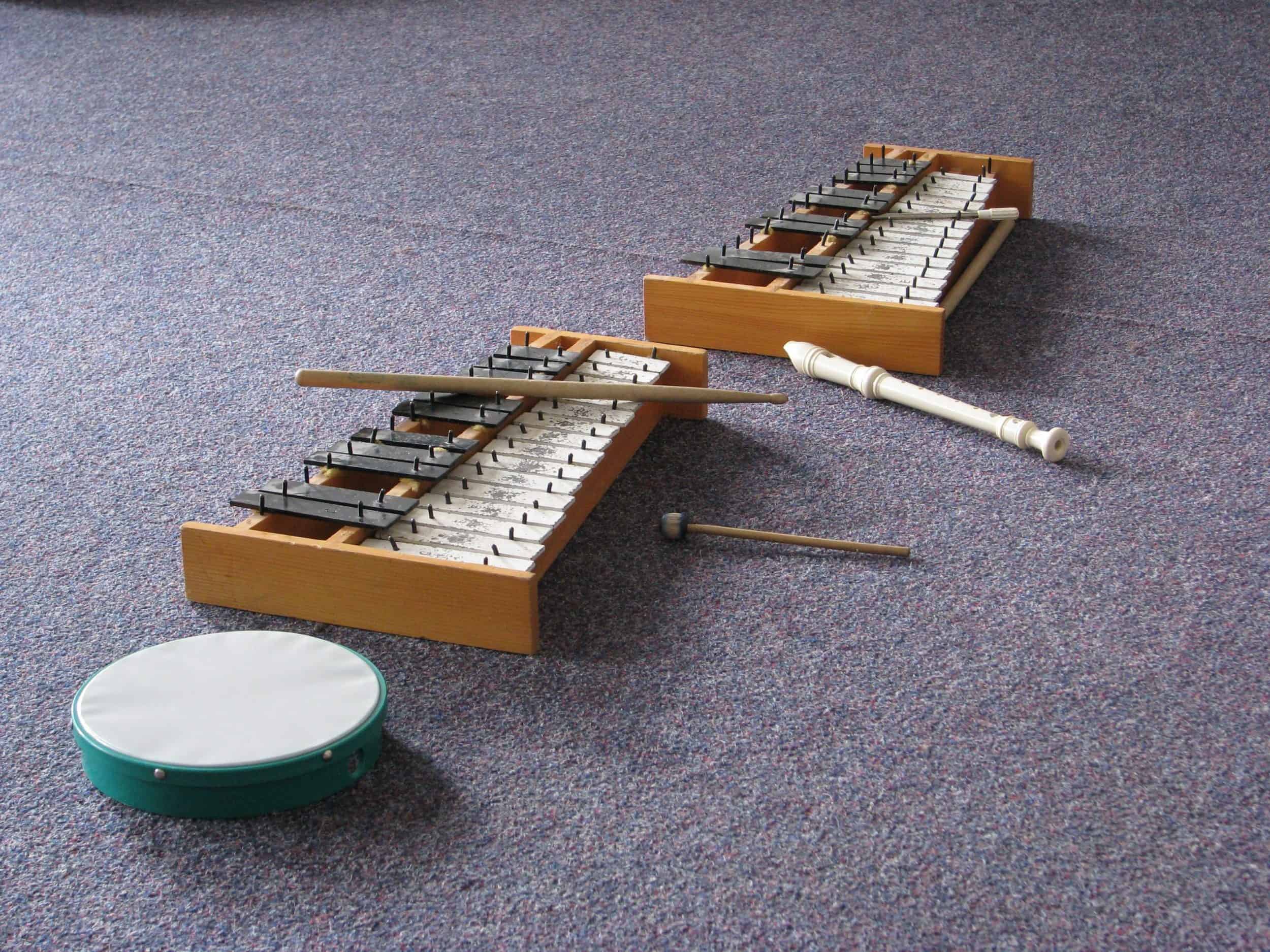Improve Your Percussion Technique
What is important is to strengthen your percussion technique...
Will you be wanting to improve your percussion playing? Then technique is the thing you should be being focused on first. An excellent technique is at the basis of any excellent player. It’s impossible to have an awesome percussion player without having an amazing technique. As part of our ‘Beginner’s Guide To Learning Percussion’, we hope this section on technique will help you improve simply and speedily.

1. Rudiments
These are different rhythms and patterns with your hands which can improve your dexterity significantly. They range from fairly simple to very intricate and difficult. They are widely used in many different styles, and not just on the snare drum. At first glance these can look very dull and boring but stick with them, excuse the pun!
2. Metronome

This is a device that produces an audible sound and sometimes visual at a regular interval set by the user. There are loads of free metronome apps. When practicing your rudiments or a piece you are learning, a metronome will not only help to keep you in time but also provides a specific reference to how fast you are playing it.
3. Sticking
Sticking (which hand you use) is what allows you to play as fast as you need. Your brain learns through creating neurons. The more times you repeat an action – precisely the same action – the more ‘hard-wired’ that neuron becomes, and the more your body and brain can do something on ‘auto-pilot’.
Play through passages slowly and note on the sheet music the best sticking that feels comfortable. This, of course, goes back to your rudiments!
You’ll soon find you are naturally creating sensible stickings, that if you practice without leaving it to chance, you’ll be successfully flying playing your instrument in no time. Again, this also applies to tuned percussion and timpani, lots of the skills we learn on the snare drum are transferable to many other percussion instruments.
4. Scales

Scales are those things that all musicians love to hate. When I grew up, I thought the only thing that was worse than practising scales, was practising arpeggios. And the only thing worse than that, included a bee sting, a broken ankle and a dogs water bowl (don’t ask!).
So what happens when a child becomes a professional musician? Why do they suddenly forget their hatred for scales and enforce it on their students?
Possibly because scales are the one thing that can make or break you as a tuned percussionist. Almost every melody is made up in parts, from a scale. Almost every bass line follows a scale at some point. Almost every harmonic progression is built around scales. So you may not realise it, but listening to music means listening to many different scales. That means playing music means playing many different scales. It really is that important.
By knowing your scales well, your muscle memory will instinctively know what scale is part of what melody or harmony – and you’ll be able to play it easier and more accurately knowing this.
Every piece is set in a ‘key’. Every key has a different number of sharps or flats, and to start with it can be tricky to remember all the configurations. Scales help with this; every scale is different BECAUSE of the sharps and flats, so once you know the scales, you should know the keys.
Have you ever seen someone sight-read a complicated piece and wondered ‘how did they do that?’ The answer is patterns. When reading music, we end up reading a series of patterns, not each individual note. It’s exactly the same reading this paragraph. Did you realise I swapped the G and A around in the middle of the word ‘paragraph’? Thought not!
5. Timpani Rolls
If you have seen a timpanist play a really fast and loud roll you’ve probably stood in wonder at how their mallets have become a complete blur! The secret to this is staying relaxed. Our first instinct when learning a roll is to go as fast as we can, which usually ends up getting very tense and very tired – very quickly. However the tenser you are, the worse sound you will produce and you’ll no doubt cause yourself an injury. Although of course, you need to keep a good hold of the mallets, you need to keep your wrists relaxed so they can move freely.
Timpani are such resonant drums – let them do all the hard work!
Improve Your Percussion Technique - Summary
Most things in life work well when you take the time to plan them. Playing a certain percussion instrument, and improving your technique, is no different. Challenge yourself on a daily basis – and remember that building a strong technique is the foundation of your playing. The time taken here will make your life easier down the road…
About the Author
Sam Jowett
Sam is a first class graduate of the Royal Welsh College of Music & Drama. He has played for a number of professional ensembles including the BBC National Orchestra of Wales, British Sinfonietta and the Novello Orchestra, which have led him to perform on some of the countries finest stages including the Royal Albert Hall and London Palladium.
Alongside Tongwynlais Music Academy, Sam is also a tutor for Rhondda Cynon Taf Music Service.
Sams current project is exploring the world of junk percussion, he also enjoys making whisky based cocktails.
Other posts by this author
What Interesting Musical Things Have I Discovered In The Week?
Are you currently missing out? We all get bombarded with e-mails, but I can promise there is one you’ll not want to miss; our 4 Feature Friday e-mail.
Every Friday, I’ll send you a short email so I can treat you to some amazing things that I’ve recently uncovered.
Tunes. Musicians. Products. Instruments.
Having the ability to tour the whole world means I’ve experienced stuff I’d never imagine. And that’s what I’d like to share with you. So just click below to get access right now.
Read the next post in this series:




